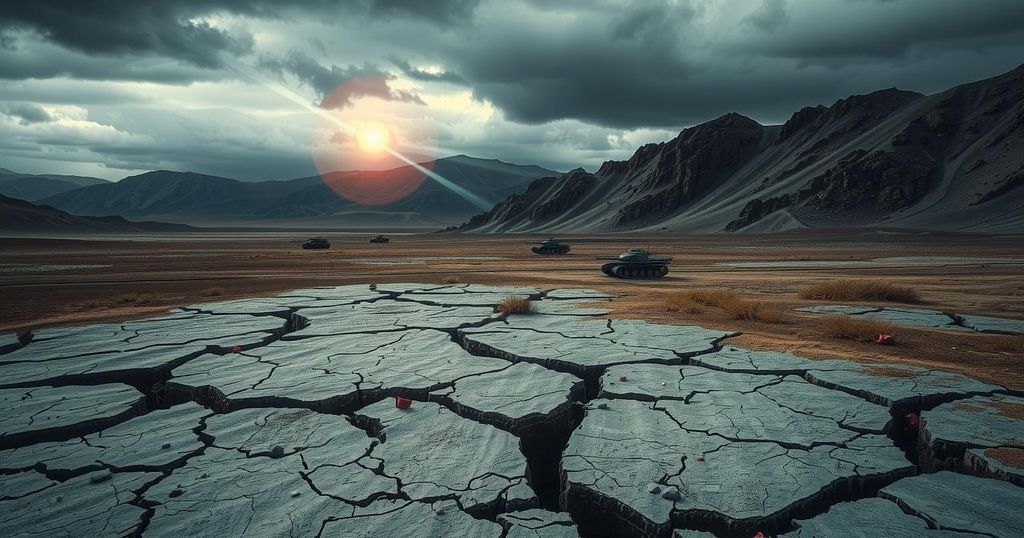Renewed Violence in the Democratic Republic of Congo: Key Insights

The Democratic Republic of Congo is experiencing renewed violence, particularly in eastern regions such as Goma, where rebel forces have intensified their offensive. Ethnic tensions, government legitimacy issues, and regional interference, particularly from Rwanda, contribute to this instability. The international community’s role and historical context significantly impact the current crisis, suggesting a need for comprehensive reforms in governance and security for lasting peace.
The Democratic Republic of Congo (DRC) is once again engulfed in violence, particularly in the eastern region, as rebel forces recently captured Goma, a significant humanitarian hub. This escalation, the most severe since 2012, has displaced hundreds of thousands and sparked allegations from the Congolese government that Rwanda is supporting these rebels. The conflict primarily involves Congolese government forces, supported by a mix of local militias and international troops, against the M23 rebels, who have historically received backing from Rwanda, escalating tensions in the area.
The latest fighting was ignited by failed peace negotiations and M23’s offensive actions. The conflict encompasses local, national, and regional dimensions. Locally, ethnic tensions and competition over resources drive conflict, while nationally, the government, perceived as weak and illegitimate, struggles for control. Regionally, outside factors, particularly Rwanda’s involvement, contribute significantly, as the Hutu militia legacy from the 1994 Rwandan genocide influences current hostilities.
Rwanda’s support for the M23, including the presence of Rwandan troops within DRC territory, complicates the situation. The Rwandan government perceives the Hutu militias as a threat, justifying their intervention. Economic interests, such as the smuggling of minerals from the DRC, also motivate Rwanda’s actions. For peace to prevail, the DRC requires a legitimate government capable of addressing security and internal strife, as well as efforts to curb external influences, particularly from Rwanda.
Western powers, notably the United States and the European Union, have provided humanitarian assistance and mediation in the past, yet the complexity of the conflict has led to limited engagement compared to other global crises. The media’s attention often diverges significantly between the DRC and other conflicts, such as in Ukraine, due to perceptions of racial and geopolitical importance. Despite the compelling narratives surrounding resource conflicts in the DRC, underlying ethnic tensions and government instability are equally significant.
To stabilize the DRC and mitigate civilian suffering, the government must cultivate legitimacy and enhance the effectiveness of its security forces. The presence of UN peacekeeping troops serves as an essential stabilizing force, though criticisms label it as insufficient. The longstanding issues of military fragmentation and political instability diminish optimism for a peaceful transition. However, resilience among Congolese citizens continues to inspire hope for eventual progress.
The situation in the Democratic Republic of Congo is marked by a prolonged history of violence and instability. Recent fighting, particularly in the eastern provinces, reflects the complex interplay of local ethnic tensions, a weak national government, and external military interventions, particularly from Rwanda. The ongoing conflict has created one of the largest displacement crises globally, with millions of civilians affected by violence and humanitarian crises linked directly to these struggles.
In summary, the Democratic Republic of Congo faces significant challenges stemming from historical and contemporary conflicts. The resurgence of violence, particularly from armed groups like the M23, is fueled by local grievances, national political weaknesses, and regional intervention by Rwanda. For sustainable peace, significant reforms in governance are essential, alongside an international commitment to address the underlying causes of the conflict.
Original Source: www.cfr.org








